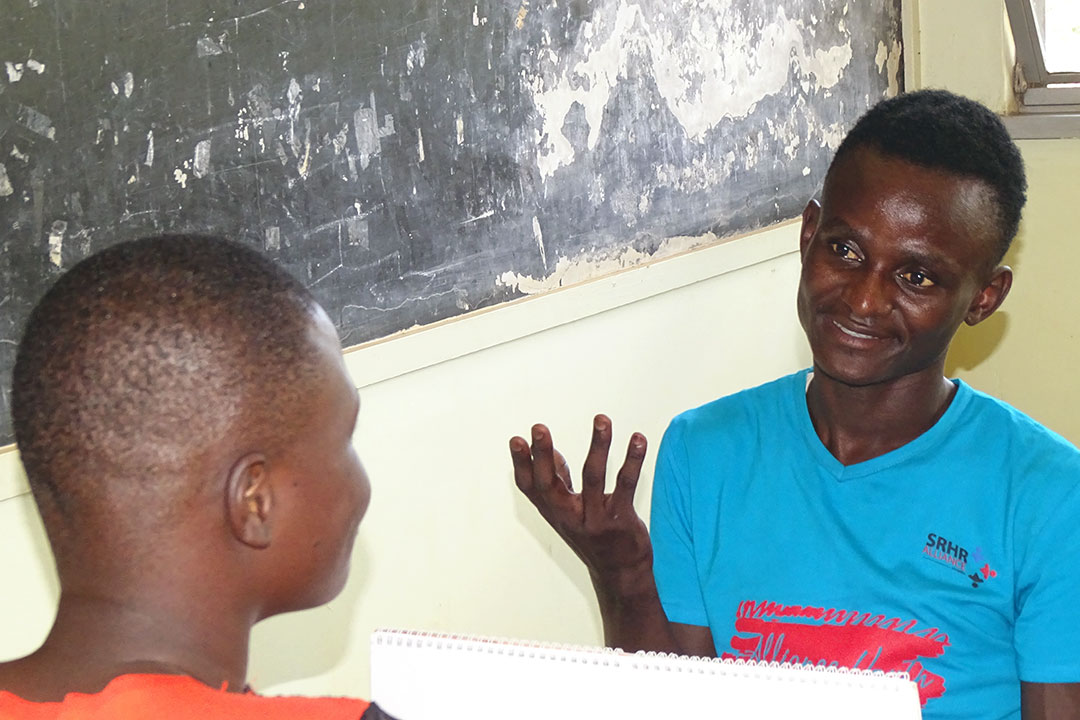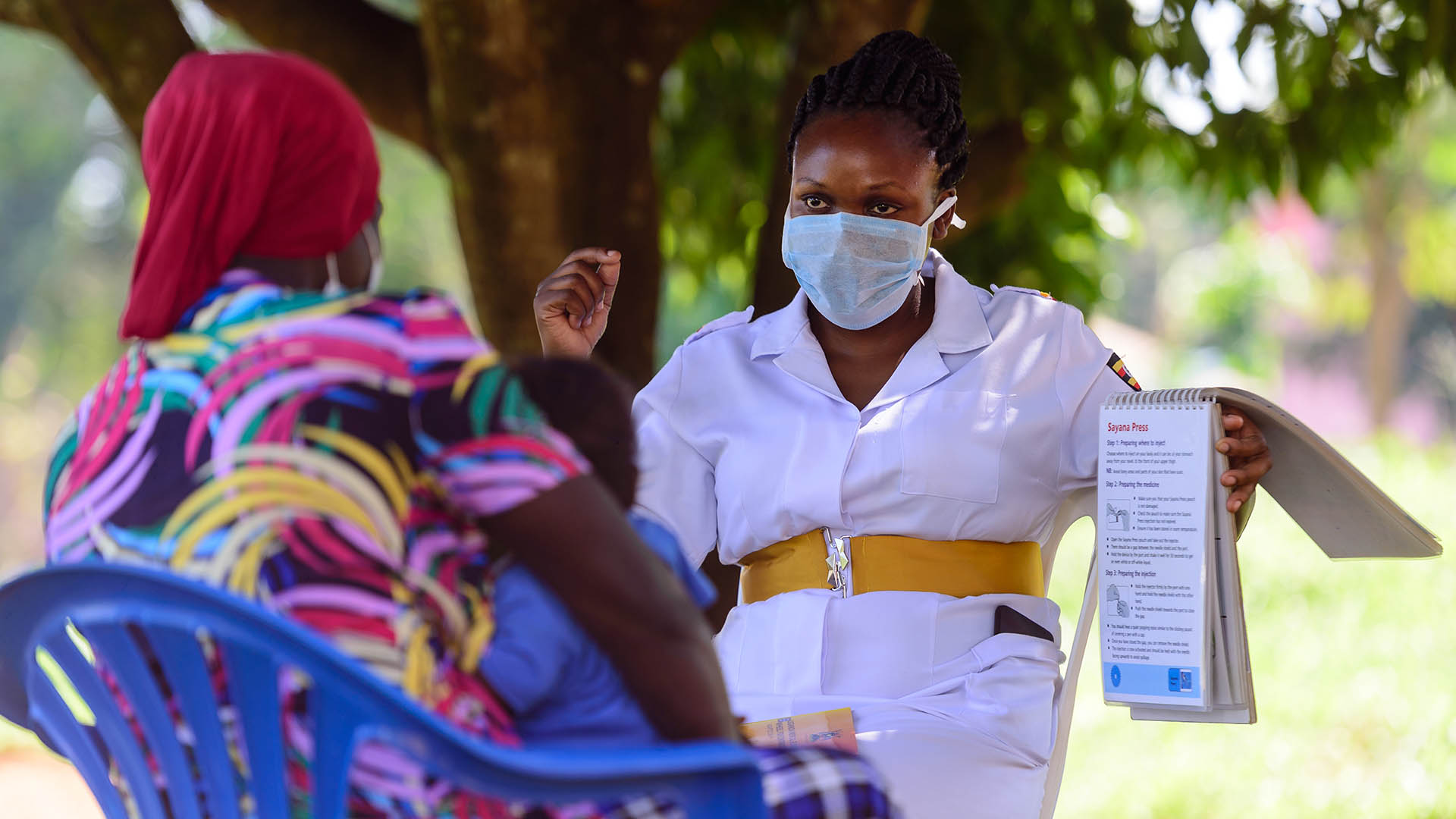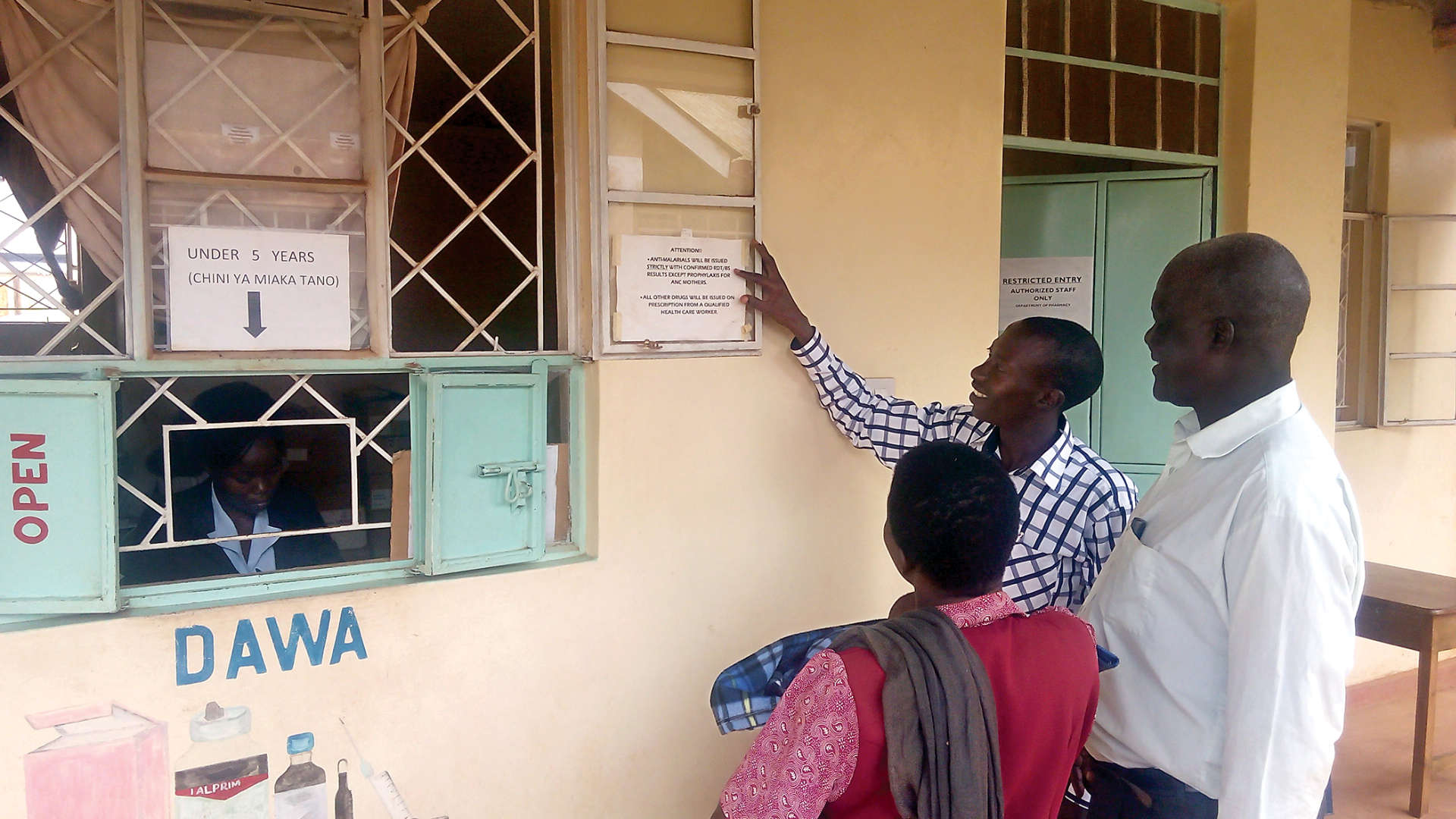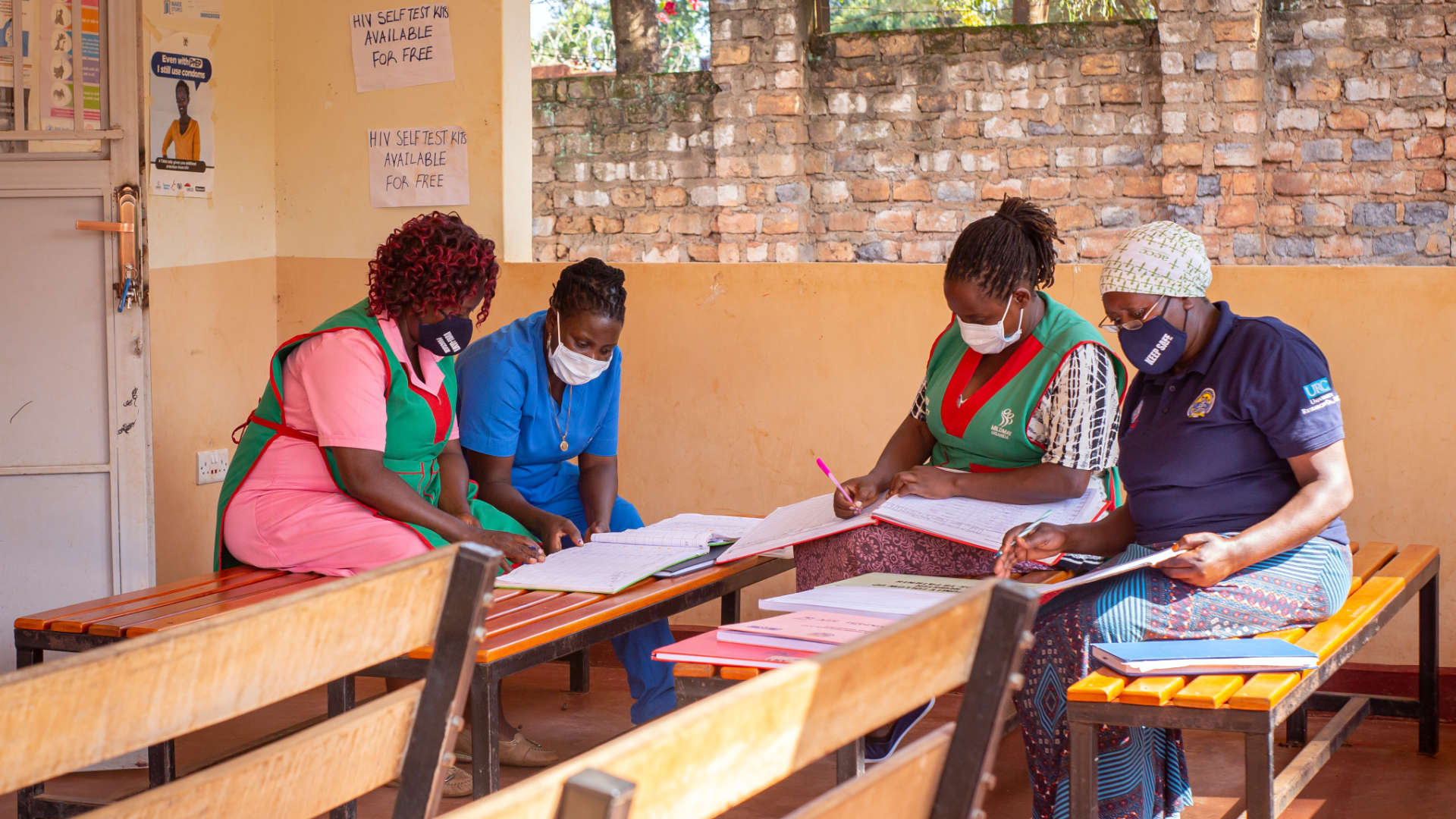Every Thursday, 19-year-old Ibrahim visits the adolescent HIV clinic at Bugiri Hospital in East Central Uganda. Ibrahim lives with HIV and relies on daily anti-retroviral treatment to keep him healthy. On this day, Ibrahim is not visiting the clinic as a patient. He is there to counsel fellow adolescents living with HIV on the importance of treatment adherence – a topic he knows well.
Ibrahim struggled for years to take his medicine consistently, often rejecting the medication altogether. “I was being stigmatized by teachers and students at school for taking medication. So, I stopped,” said Ibrahim. Soon his HIV viral load level increased, putting his health at risk. Knowing of Ibrahim’s adherence challenges and high viral load, his health care service providers enrolled him in a one-week Warriors Camp organized by URC’s USAID Regional Health Integration to Enhance Services in East Central Uganda (RHITES-EC) Project and Makerere University – Johns Hopkins Research Collaboration’s Young Generation Alive.
The Warriors Camp aims to improve viral suppression rates of 40 virally non-suppressed adolescents receiving care at 20 RHITES-EC-supported health care facilities. Trained peers and health care service providers use team building activities to emphasize the importance of treatment adherence. The camp provided a platform for participants to share experiences with HIV care and treatment and express the challenges they face in adhering to treatment and achieving viral suppression. Fellow Warriors supported Ibrahim to share his story and create a plan for taking his medicine. “Today, I take the right medicines, at the right dosage, at the right time, and in the right way, thanks to the camp,” remarks Ibrahim. “I now travel with two pills in my bag every day to ensure that I do not miss my medication. I am no longer shy to take my drugs or tell people that I am HIV-positive, and my viral load is now undetectable.” Ibrahim achieved viral suppression just four months after attending the Warriors Camp.
After attaining viral suppression, Ibrahim transitioned from a Warrior to a Champion and began counseling his peers at Bugiri Hospital to adhere to treatment. At the end of each clinic day, Ibrahim sorts the adolescent patients’ files and lists the names of any patients who missed their appointments. Ibrahim follows up with the missing patients at their homes and involves their caregivers so that together they can bring the adolescents back into care. “Since December 2018, I have counseled and followed up with 47 virally non-suppressed adolescents who had missed appointments and 25 are now virally suppressed!” says Ibrahim. “We are currently organizing meetings with the caregivers of the 22 adolescents who have not yet achieved suppression to obtain their support in caring for them.”
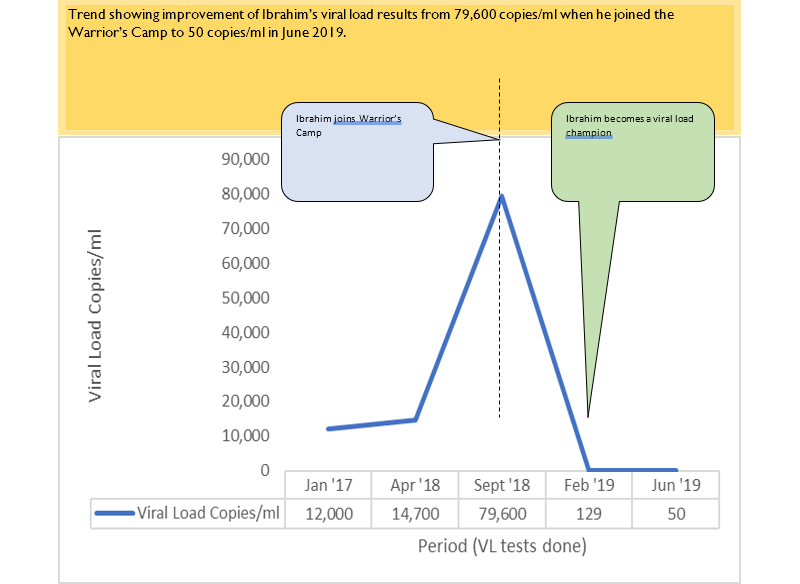
As of September 2019, 12 months after attending the Warriors Camp, 27 of the 40 Warriors have achieved viral suppression and become Champions. The 13 Warriors who are not yet virally suppressed continue to receive counseling services and psychosocial support to promote treatment adherence.
Ibrahim is grateful to the Warriors Camp for the critical role they played in getting his health back on track. “If it was not for the Warriors Camp, I would be dead today,” says Ibrahim. Determined to improve the health of his peers, Ibrahim and other Champions volunteer at health care facilities providing support and counseling to their peers. The peer Champions network currently supports some 616 adolescents to achieve viral suppression.
